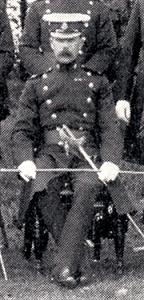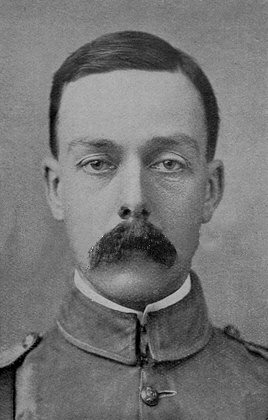| Other Info | Born in 1859 in Devon eldest son of Captain Nugent
Chichester, J.P., late 7th Dragoon Guards, of Calverleigh Court, Tiverton.
Walter Raleigh Chichester was educated at Priory Park College, Bath. Commissioned in to the Devonshire Regiment. Transferred to the 4th Battalion Worcestershire Regiment in 1890. He joined the 2nd Battalion The Worcestershire Regiment in 1891, and served with it in Ireland, where the Chichesters had estate interests. He also served in the South African War (1900-02) with that battalion, and was invalided home to assist in the formation of the 3rd Battalion Worcestershire Regiment. He returned to South Africa in 1907 in temporary command of the 3rd Battalion.
Early in the Great War 1914-18, by which time he held his majority, he went out with the 3rd Battalion as part of the small Expeditionary Force, and was one of the first Worcestershire casualties. In August 1914, he and Major C. V. Beresford, also of the Worcestershire Regiment, who married a sister of Sir E. G. Chichester, of Raleigh, Devonshire, were wounded by the same shell at Le Cateau. Both were taken prisoner and Colonel Chichester had his right leg amputated by a German surgeon.
Until February 1915, he remained a prisoner in occupied parts of France, and then he was one of the few officer-prisoners to be exchanged for German officers who were held prisoners here. Afterwards he was employed on the Staff, and then in command of an Army School of Instruction. In the later stages of the War, Colonel Chichester took over command at Norton Barracks, and the appointment was a very happy one, not only because it brought him to command the Depot of the Regiment which he had so splendidly served, but because it meant that he became associated there with his brother, the late Major J. Chichester, who had retired from the Army some years before, but had gone back to the Depot to render valuable service there.
Colonel Chichester remained at Norton until March 1919, when he retired with the rank of Lieutenant-Colonel.
For his military service he was awarded the Order of the British Empire. |
|---|

